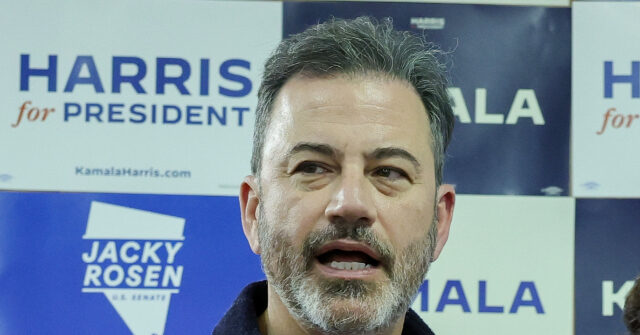In the wake of Donald Trump’s election victory, ABC’s Jimmy Kimmel expressed a strong emotional reaction, nearly breaking down during his coverage of the event. This response reflected the dissatisfaction and shock many felt following the election. However, it wasn’t long before Kimmel reverted to his trademark comedic persona, engaging in sharp commentary and satire, particularly targeting incoming First Lady Melania Trump. His initial feelings of dismay gave way to a focus on political humor, which often veers into controversial territory.
During his opening monologue, Kimmel took shots at Melania, particularly her decision to decline an invitation from Jill Biden to the White House. Kimmel suggested that Melania’s reasons were flimsy, cheekily referring to her “booook” that had been released five weeks prior. This comment not only poked fun at her accent—highlighting the tensions surrounding her immigrant status—but also seemed to dismiss her potential motives for not attending the event. The audience responded with laughter, revealing how Kimmel’s jokes resonate with viewers familiar with the ongoing political narrative surrounding the Trump family.
Kimmel’s humor took a more speculative turn as he discussed the implications of Melania not living full-time in the White House. He visualized a surreal possibility of Donald Trump finding himself single, further eliciting laughter from the audience. His riff on the idea of a “single Donald Trump” tapped into a broader societal fascination with the personal lives of public figures, especially those like Trump, whose lives are already laden with drama and controversy. This satirical examination of Melania’s role as First Lady served as a commentary on the uncertainties and dynamics within the Trump family.
Throughout the campaign period, Kimmel had positioned himself as a significant player in shaping political narratives, notably when he hosted Kamala Harris on his show in an effort to humanize her to the American public. Their friendly interactions, including sharing a beer, showcased Kimmel’s ability to blend comedy with political engagement, thereby influencing viewers’ perceptions. This shift from political support to mockery illustrates the often precarious nature of entertainment figures navigating the political landscape, particularly when public sentiment shifts dramatically.
Kimmel’s earlier emotional response to the election results—where he admitted it was a bad night and struggled to contain his tears—served as an insight into the polarized environment in which comedians operate today. His ability to transition from deep emotional investment to sharp comedic critique highlights the complexities of modern comedy, where entertainers are expected to balance their personal beliefs with the demands of their professions. This duality provides a unique glimpse into how Kimmel and others reconcile their political opinions with their roles as entertainers.
In summary, Kimmel’s blend of humor and political commentary encapsulates a significant aspect of contemporary political discourse. By drawing attention to Melania Trump’s choices and speculating about her marriage with a mix of mockery and satire, he not only entertains but also sparks discussion about the implications of political personas in modern society. The transition from heartfelt emotion to comedy reflects larger societal tensions surrounding the Trump presidency and its aftermath, demonstrating the role entertainers play in shaping narratives and provoking thought among their audiences.

